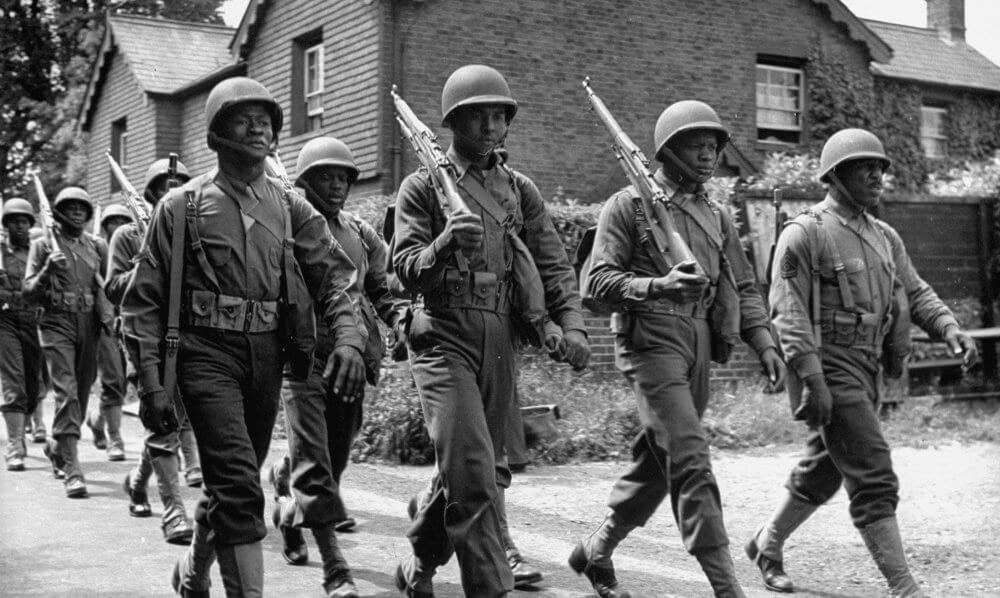I allow myself a brief break from the coverage of the American political scene to underline the recognition by the Netherlands of the contribution of a black battalion to the end of the German occupation.
You probably already knew that racial discrimination and segregation did not prevail in American society, it was also found in the troops.
During the Second War, the armored battalions were separated, there were units for white soldiers and others for black soldiers. Before they could prove themselves, they were often assigned manual tasks. Among these works which did not require any particular skill, we find the painful work of recovering the bodies of soldiers who died in combat.
A recent research project on the Black Liberators of the Netherlands provides much more information on the history of soldiers of color. At the origin of this project, we find the efforts and the collaboration of the Dutch historian Mieke Kirkels and the black soldier Jeff Wiggins.
Wiggins belonged to the unit of black soldiers who helped to bury nearly 20,000 soldiers, 172 of whom were soldiers of color. The son of a sharecropper from the South, he enlisted to escape the Ku Klux Klan. Returning to the country, he was determined to forget this chapter of his life until Kirkels joined him in 2003. Reluctant at first, Wiggins then confided in the historian. Their discussions will lead to the publication of the book From Alabama to Margraten: Memories of Grave Digger Jefferson Wiggins .
The collaboration between the Dutch and the American will be even more fruitful since it will lead the author to continue her research and to inspire other researchers. It was in this context that the Black Liberator Project was born.
So it was this latest project that led to last week’s commemorations in Washington. In the presence of one of the few survivors of black soldier units, the Netherlands thanked the colored soldiers for their courage, sacrifice, and determination to make freedom triumph.
I was interested in the journey of the survivor present at the ceremony. James W. Baldwin is now 95 years old, but his memory still seems very good and his words deserve our attention.
Military times
If above I illustrated the thankless role of Wiggins and the members of his unit, with Baldwin we obtain more information on the Blacks who fought. He remembers the liberation of 23 cities!
What contributes to the importance of the sacrifice, but also to the paradoxical character of the colored soldiers within the troops, is that the rights for which we fought in Europe, the Blacks themselves did not always have them in the States -United.
Beyond historians and leaders, many people in the Netherlands are now making sure to preserve the memory of the contribution of black soldiers to the liberation of their country. Families go as far as ensuring the maintenance of the graves of those of them who have never returned to the country.
If you are interested in the stories of these soldiers, click here to access an article from the Military Times site. The history of discrimination and segregation is always shocking, especially when people are asked to risk their lives to preserve rights elsewhere that they do not enjoy at home. Fortunately, we will be inspired by black soldiers and then lead the battle for the recognition of civil rights in the United States.












